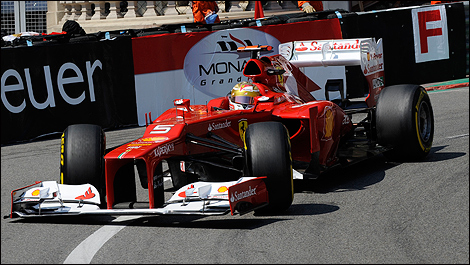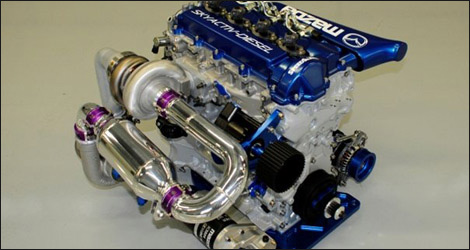Ford's doing great. Their mainstream brand has got plenty of products in the pipeline and they're constantly improving their current line-up.
To balance their books, Ford unloaded all the luxury brands that were bought under previous management over the last few years, namely Jaguar, Land Rover, Aston Martin and Volvo. Of course, that was after adopting their platforms, safety technologies and performance know-how. Then, Mercury was killed off; a virtual carbon copy of Ford's products, so no big deal.
That leaves Lincoln as Ford's premium stable-mate which has been suffering for a while, not quite certain of its mission or who their target audience should be.
The company is hoping that will soon change, as the Lincoln brand is in the process of reinventing itself. There will be a greater distinction with Ford products, starting with styling. Max Wolff, their new Design Director, has started by applying his artistic creativity to the 2013 MKS sedan, the 2013
MKT crossover, while totally reskinning the 2013
MKZ sedan, due this later this year.
Mild changes for now
The new MKS hasn't been reinvented, but has received redesigned front and rear fascias. The car's nose now boasts the new Lincoln corporate visage, complete with a grille that mimics an eagle's spread wings. Wolff and his team could have been a little more adventurous, as the MKS doesn't boast the uniqueness, the boldness that certain other luxury brands flaunt.
Ditto for the car's posterior; the reworked taillights fail to add character to the overall appearance. On the other hand, the MKS is elegantly subtle, and there are people out there who dig a set of wheels that doesn't stick out of the crowd.
 |
| The 2013 Lincoln MKS receives mild cosmetic revisions, including a new corporate face. (Photo: Michel Deslauriers) |
Now AWD only
A 3.7L V6 remains as the base engine, which produces 305 hp (up from 273) and 280 lb-ft of torque (up from 270) and is mated to a 6-speed automatic transmission with paddle shifters. Those who wish for more muscle can opt, as before, for the twin-turbo 3.5L V6, good for 355 hp and 350 lb-ft.
All-wheel drive, which used to be optional, is now standard fare in the Canadian-spec MKS. In addition, Ford claims a fuel consumption reduction with both engines.
Reworked suspension
To make Lincolns more appealing, one of the aspects taken into consideration is improving their handling capabilities. As such, the 2013 MKS swaps the old car's fixed-rate dampers for continuously controlled ones.
The MKS and MKT also receive what is called Lincoln Drive Control, an electronically adjustable suspension with three drive modes: Comfort, Normal and Sport. This will be exclusive to Lincoln vehicles. Basically, you can program what mode you want when the shift lever is in the 'D' position, and in the 'S' position, too.
With very little time on a closed circuit with the MKS, and no time at all on the open road, I didn't notice any difference between the three modes. I did drive an MKT through the countryside, however, and again, no difference besides perhaps a more responsive throttle in Sport mode. We'll have to further evaluate this when we perform a full road test.
The big downside: unlike similar systems in rival luxury brands, you can't simply press a button to switch suspension modes, you must fiddle through the on-screen menus to change modes, which you shouldn't be doing while driving.
 |
| A new, electronically adjustable suspension is now featured in the MKS. (Photo: Ford) |
Better steering feel
The braking tests we were invited to perform, between the 2013 and outgoing 2012 models, also didn't produce any convincing results, despite the larger diameter front and rear discs; again, the very limited time behind the wheel didn't help.
On the other hand, what has significantly improved is the MKS' steering feel. It boasts a quicker ratio and is now electrically assisted with both engine choices, not just the EcoBoost V6 as before. It's more responsive to driver inputs, and makes the car a lot more enjoyable. How little things can do wonders.
More gadgets
For 2013, the Lincoln MKS gets a bunch of new high-tech gizmos, either standard or optional. The list includes: MyLincoln Touch, lane-keeping assist, a driver drowsiness detection system and automatic high beams. Adaptive cruise control, collision warning, Active Park Assist, blind-spot monitor and other stuff are still offered.
Inside, the steering wheel and centre stack are redesigned, looking much better. The finger-swiping volume and fan speed interfaces, like those in the
MKX, are now found in the MKS, which may not please everyone. A heated wheel is now available, as is new wood (real) and leather colours.
 |
| Inside, the steering wheel and centre stack are redesigned, looking much better. (Photo: Ford) |
Price decrease
The 2013 MKS starts at $47,700, while the EcoBoost version costs $52,200. That's a $2,500 drop in price compared to their 2012 equivalents.
So, the 2013 Lincoln MKS full-size luxury sedan will be an in-betweener car. It's an improvement over the 2012 model, without being the result of the brand's new strategy and creative direction. Still, it's not at all bad for representing Lincoln through its transition period.
Key Competitors

 The latest auto news, reviews, prices, product and vehicle releases.
The latest auto news, reviews, prices, product and vehicle releases. 









